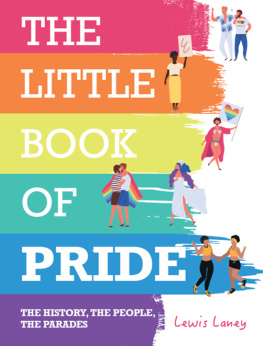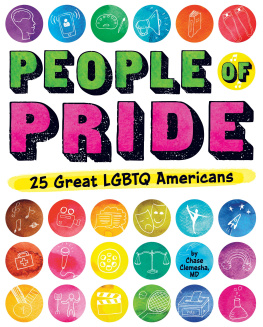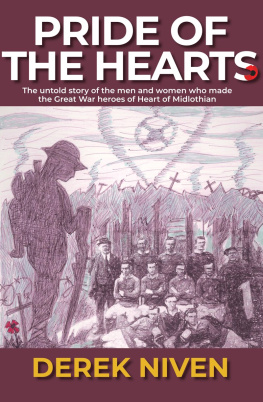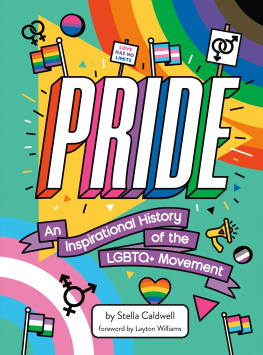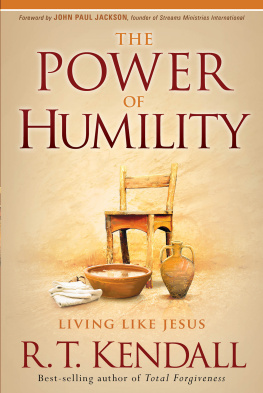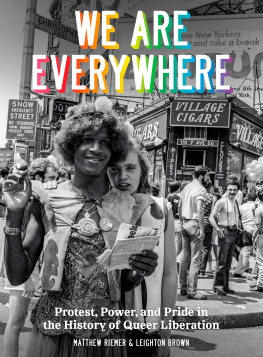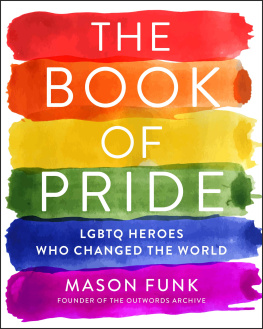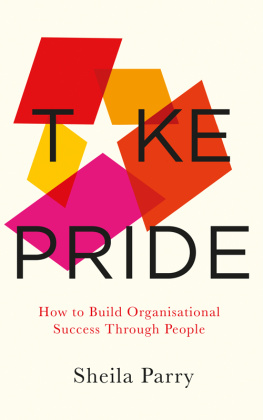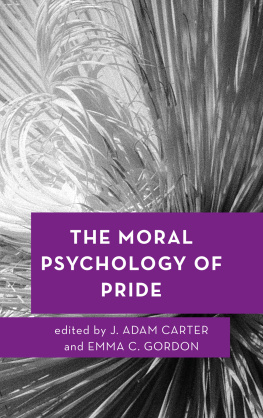THE LITTLE BOOK OF
PRIDE
THE HISTORY, THE PEOPLE, THE PARADES
Lewis Laney

Published in 2020 by Dog n Bone Books
An imprint of Ryland, Peters & Small Ltd
2021 Jockeys Fields 341 E 116th St
London WC1R 4BW New York, NY 10029
www.rylandpeters.com
10 9 8 7 6 5 4 3 2 1
Text Lewis Laney 2020
Design Dog n Bone Books 2020
The authors moral rights have been asserted.
All rights reserved. No part of this publication may be reproduced, stored in a retrieval system, or transmitted in any form or by any means, electronic, mechanical, photocopying, or otherwise, without the prior permission of the publisher.
A CIP catalog record for this book is available from the Library of Congress and the British Library.
eISBN: 978-1-912983-25-4
ISBN: 978 1 912983 16 2
Printed in China
Designer: Geoff Borin
Illustrations: Shutterstock/GoodStudio;
: Shutterstock/cammep
CONTENTS
Homosexuality has been around for a very long time. Its been documented that the Greek poet Sappho, who lived on the island of Lesbos, was writing love letters and poems to other women in the seventh century; there are countless depictions of homoerotic love between men on Greek pottery, and, albeit in subtle subtexts, same-sex love has been written about in books and played out in theaters for hundreds of years. But this isnt a book about the history or evolution of homosexualitythat would need a much bigger space than this. This is a little book about Pride.
Pride as we know it today consists of marches, parades, festivals, and various other events that give both visibility and a voice to LGBTQ+ people around the world. In many cities, Pride is an annual occasion where LGBTQ+ people, straight allies, and supporting brands and businesses come together to celebrate the queer community.
The first Pride event I went to was wonderful. There was so much happiness and I remember being surprised at just how packed the streets were. In my teens and early twenties, I attended lots of Pride events with various family, friends, and boyfriends, and I always had a great time. However, I dont think it was until I got a little older and started learning more about queer history that I fully appreciated the meaning of Pride, and how important it is.

People wave flags and brandish placards, they dress up in wild and wonderful outfits, they dance and drink, they celebrate who they are, and they share the message #LOVEISLOVE no matter your gender or sexuality. But Pride has not always been this way. Pride started out as a riot in which the queer community fought back against oppression and against being treated as criminals with few or no rights.
Its widely acknowledged that the riots, which took place at the Stonewall Inn in New York City in June 1969, were the start of the Pride movement, and a huge turning point for gay rights.
This book will primarily cover the evolution of Pride in the twentieth and twenty-first centuries. It will explore how LGBTQ+ people expressed themselves before the Stonewall riots and the Pride marches. It will look at the beginnings of a visible Pride movement; a fight back against the societies and authorities that were forcing queer people to live in the shadows. And it will profile those who have fought for queer rights and for human rightsgay, lesbian, trans, bi, queer, and drag queen activists, as well as straight allies, who stand in solidarity with the LGBTQ+ community and use their voices and platforms to bring about change and acceptance. This little book will discuss how Pride marches have evolved, how they sometimes come under threat, and how they are now a celebration of LGBTQ+ culture and history as well as a demand for change.
And what next for Pride? Now that Pride (in much of the western world) has the backing of big corporations, celebrity names, and politicians, how should it harness that power?
I hope that this book informs you about queer history and Pride. I hope it helps you to enjoy and appreciate future (and maybe your first) Pride events to their fullest.

W ith the hundreds (perhaps thousands) of Pride events now taking place around the world, its easy to forget that only half a century ago there were no marches, rallies, or parades as we know them now. But that doesnt mean that the LGBTQ+ community didnt exist, and it doesnt mean that they didnt have pride in themselves or try to make their voices heard. Many queer people showed pride in different ways, often in the subtext of their work, particularly in literature and the creative arts, while some were just out and proud about who they were and who they loved, and suffered the consequences. Even before the June 1969 Stonewall riots in New York City there were individuals and groups fighting for queer rights: for the right to hold their partners hand in public, for the right to go to work without fear of being fired just for being gay, and for the right to buy a beer in a gay bar, dressed however they wanted, without being brutally beaten.

NEED TO KNOW
Polari: the Secret Queer Language
For many years in Britain up to the decriminalization of homosexuality (and somewhat beyond), there was a secret queer language called Polari. It was primarily used by gay men and was most popular in larger cities, particularly London, where there were gay underground social circles. This secret language enabled gay men to discuss various things without the wider public (or the police) knowing what they were saying.
Polari was a method of communication that was made up of various words and phrases from other languages and forms of slang, and included words that were entirely made up or simply a backward spelling of a word. As a language it used English grammar but borrowed words and phrases from Thieves Canta language used hundreds of years ago by thieves, beggars, and outlaws. It also included Lingua Franca, spoken by sailors and marines, Cockney Rhyming Slangused primarily to evade the law in Englandand Romani.

Polari was created to serve the needs of those in gay subculture, and so provided words and phrases for that communitys activities and values. Lily Law or Hilda Handcuffs were the names given to the police to mock them, and an attractive straight man was NAFF (Not Available for F*****g). Other words, such as bona (good), riah (hair), and zhoosh (smarten up), allowed for vapid conversations about a persons appearance without them knowing they were being discussed.
Sadly, the use of Polari began to decline in the 1960s, when a radio show featuring comedy actor Kenneth Williams began using it, letting everyone in on the secret. While it is sad that Polari fell out of favor, particularly with younger queer people who were trying to smash down the camp stereotypes it aligned with, the positive side is that its decline is also connected with the decriminalization of homosexuality, meaning less of a need for a secret language.

